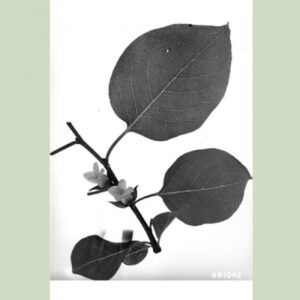Showing the single result
Wholesale Persimmon Trees in Michigan
Based in Free Soil, Michigan, Cold Stream Farm is a wholesale supplier of persimmon trees and other deciduous shrubs. Our persimmon plants are available primarily in the spring, with bare root seedlings delivered all across the continent. Currently, Cold Stream Farm does have a minimum order on persimmon trees and can be contacted for questions regarding retail and wholesale shipments during ordinary business hours.
A Brief Background on Persimmon Trees
Persimmons are a group of plants with edible fruits that belong to the genus Diospyros. In Michigan, Cold Stream Farm grows Diospyros virginiana, which is a North American native species also known as the American persimmon or the common persimmon. While other species of persimmon are native Mexico, Asia, and beyond, Diospyros virginiana (American persimmon) can be found throughout most of the eastern United States from Texas to Pennsylvania.
What is a Persimmon?
The fruit of a persimmon tree is a berry, whose name is derived from the Algonquian language word for “dry fruit.” Persimmons have had many nicknames throughout the last several hundred years including God’s pear, wheat of Zeus, divine fruit, and Jove’s fire.
Resembling a tomato, the fruit of an American persimmon tree grows to be bright orange and mature into a reddish-purple hue. The fruits are edible, primarily used in baked goods and specialty puddings around the holidays.
The appearance of an American Persimmon Tree
The glossy dark green leaves of a persimmon tree turn from dark green to yellow and into red in the fall, before shedding in the winter. Through the cold months of the year, it is common for persimmon fruit to continue to cling to the branches well past the fall season.
Persimmons are a very fast-growing species, eventually reaching heights of around 40 feet tall. The dark gray bark is sectioned into distinct rectangles, which makes it easy to recognize the plant in the winter. In the wild, it is most common to see an American persimmon tree growing in dry or rocky woods and next to roadsides in dense thickets.
Best Conditions for Persimmon Trees
Growing best in USDA hardiness zones 4-9, Persimmon trees can be well adapted to a wide range of soils and conditions. The plants can withstand full sun and partial shade, growing best in moist, well-drained soils. Persimmon trees thrive in sandy soils and are very drought tolerant after reaching a mature height.
In order for a persimmon tree to bear fruit, female plants must be pollinated by male plants. In some cases, persimmons may not be dioecious, bearing perfect flowers without the need for a second plant.
How to Enjoy a Persimmon
In the fall, persimmons can be enjoyed fresh off the plant, and eaten as a hand-fruit. Although the fruits are generally too soft to be shipped and sold, persimmons are typically enjoyed locally in a wide array of dishes. Most commonly, persimmon pudding is prepared, or else the flavors can be used in teas, ice cream, jellies, jams, and more.
Persimmons are very sweet tasting and contain a high amount of glucose content. They are among some of the latest-producing fruit-bearing trees throughout the ordinary growing seasons.
Other Uses for Persimmon Plants
Other than the fruit, the wood of a persimmon plant is the second-most used part of the species. The wood is quite hard and very light, making it useful in shoe manufacturing, silverware, and musical instruments as well as sports equipment such as golf clubs and pool cues.
As a fast-growing and attractive plant, Persimmons are often used ornamentally in both yards and public spaces. The plants do not require significant upkeep and are very useful for repairing habitats and improving soil conditions.
Wildlife and Persimmon Trees
The sweet fruit of a persimmon tree is a favorite among wildlife looking for a meal in the late fall and winter. Besides humans, persimmons are most often enjoyed by raccoons, opossum, and deer as well as many bird species including turkey, grouse, pheasant, and quail. Protection from wildlife may be necessary for the first few years of a persimmon tree’s lifetime as well as during fruit-bearing years if the tree is planned for human harvesting.
Low Maintenance, Resilient Plants
Persimmon trees are naturally immune to many common ailments resulting from insect infestations. They grow quickly without any significant maintenance necessary. If caterpillars or webworms are spotted on your persimmon tree, a low-impact fertilizer is best for maintaining the plant’s health.
Cold Stream Farm supplies wholesale Persimmon Trees.
If you are ready to get started on your persimmon tree order, feel free to check our current availability or give us a call today. Cold Stream Farm is a wholesale and retail supplier of persimmon bare-root seedlings, with no minimum order on shipments throughout the United States. Persimmon shrubs are typically available in the spring only, so please do not hesitate to reach out about current or future orders.


